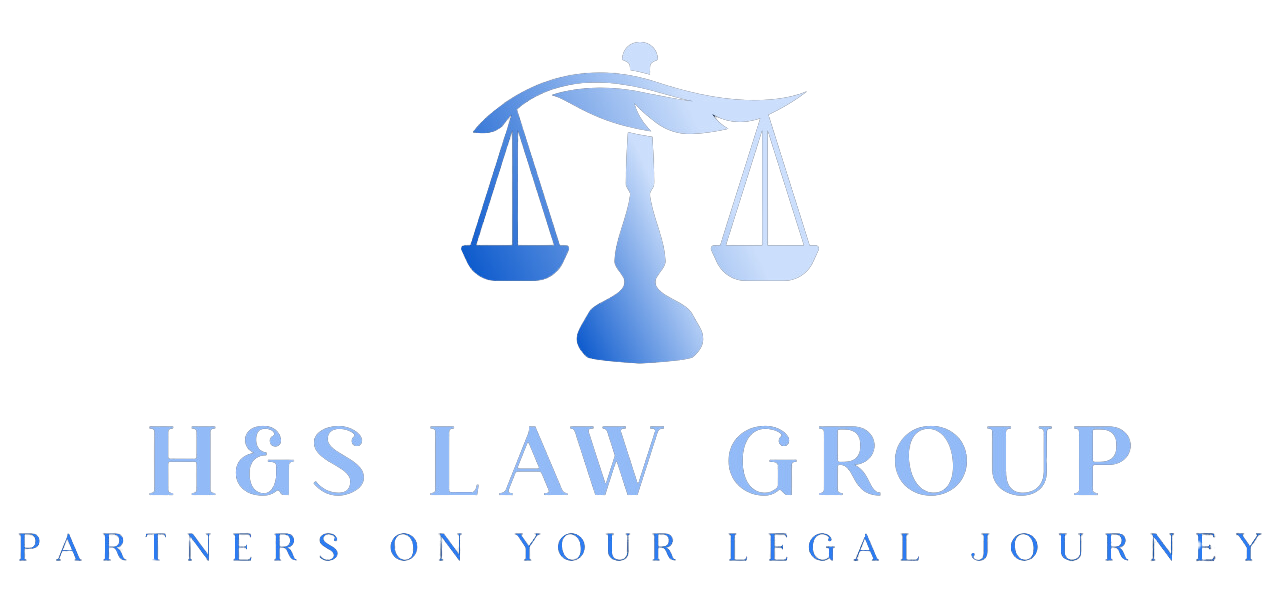
How to Sue a Nursing Home for Negligence in New Jersey
Families trust nursing homes to protect and care for their loved ones. When that trust is broken through negligence, the consequences can be devastating: physically, emotionally, and financially. If you believe a nursing home in New Jersey harmed your family member due to substandard care, you may have the right to file a lawsuit, and H&S Law Group is here to help.
This guide explains what nursing home negligence looks like, how the lawsuit process works in New Jersey, and what steps you should take to protect your loved one’s rights.
What Is Nursing Home Negligence?
Nursing home negligence occurs when a facility fails to provide the level of care that a reasonably competent facility would provide under similar circumstances. This is more than a simple mistake. Negligence reflects a breakdown in required standards of care, such as failing to monitor a resident, ignoring medical needs, or not providing basic hygiene or nutrition.
In New Jersey, nursing homes are legally required to follow state and federal regulations, including providing adequate staffing, proper training, safe environments, and individualized care plans. When they fail to meet these obligations, residents can suffer serious harm.
Common Signs of Negligence to Watch For
The signs of neglect or abuse can be subtle or obvious. Pay attention to changes in your loved one’s physical health or emotional state.
These warning signs may indicate a serious problem:
- Bedsores: Also known as pressure ulcers.
- Malnutrition or Dehydration: Includes sudden weight loss.
- Unexplained Falls: Especially repeated falls.
- Bruises or Fractures: Any injury the staff cannot explain.
- Poor Hygiene: Dirty clothes, linens, or strong odors.
- Medication Errors: Wrong doses, missed doses, or overmedication.
- Withdrawal: Sudden depression or fearfulness.
- Elopement: The resident wanders out of the facility unsupervised.
Any of these signs warrants immediate attention and documentation.
How Abuse Differs From Neglect
Neglect usually results from carelessness, understaffing, or lack of training. Abuse, on the other hand, involves intentional harm, such as hitting, yelling, isolating, or financially exploiting a resident.
Both neglect and abuse are grounds for legal action, but the evidence and legal strategies used in each case may differ. Neglect typically focuses on systemic failures, while abuse often focuses on individual wrongdoing. Consult with a nursing home abuse attorney to review the legal requirements for a lawsuit.
The Legal Requirements for a Lawsuit
To sue a nursing home for negligence in New Jersey, you must establish specific legal elements:
- Duty of care – The nursing home owed the resident a legal duty to provide proper care.
- Breach of duty – The facility failed to meet that standard.
- Causation – The breach directly caused injury or harm.
- Damages – The resident suffered actual, measurable harm.
Meeting these requirements usually requires medical records, witness statements, expert testimony, and other evidence.
Proving the Four Elements of Negligence
A strong nursing home negligence case provides clear and compelling proof of each legal element:
- Duty is typically straightforward, as nursing homes automatically owe residents reasonable care under state law and federal regulations.
- Breach may involve showing inadequate staffing, ignored care plans, improper monitoring, or failure to follow medical instructions.
- Causation must link the breach directly to the resident’s injuries—such as proving a bedsore developed because staff failed to reposition the resident.
- Damages can include physical injuries, emotional distress, financial losses, and even wrongful death.
Your attorney will rely on medical experts to establish what the nursing home should have done and how its failures caused harm.
At H&S Law Group, we thoroughly investigate each case, gather evidence, and aggressively pursue justice to ensure your loved one receives the care, dignity, and compensation they deserve. Contact us at (973) 200-1433 to talk to a personal injury attorney.
New Jersey’s Affidavit of Merit Requirement
New Jersey law requires plaintiffs in professional negligence cases—including nursing home negligence—to file an Affidavit of Merit. This document must be signed by a qualified medical expert and state that:
- The nursing home’s conduct likely deviated from accepted professional standards, and
- This deviation may have caused the resident’s injuries.
The affidavit must be filed within 60 days after the nursing home submits its formal defense in the lawsuit (with one possible 60-day extension). Missing this deadline can cause the case to be dismissed, making legal representation essential.
The Statute of Limitations: A Critical Deadline
In most New Jersey nursing home negligence cases, you have two years from the date of the injury, or the date you reasonably should have discovered the injury, to file a lawsuit.
For wrongful death cases, the two-year deadline is strict and typically does not allow extensions. If the case involves a state-run facility, additional notice requirements may apply under the New Jersey Tort Claims Act.
Failing to file within the statute of limitations almost always results in losing the right to pursue compensation.
Document Everything Immediately
A strong case is built on strong evidence. Keep a detailed record of everything you see and hear.
- Take Notes: Write down dates, times, and names of staff.
- Take Photos: Safely photograph any visible injuries, poor conditions, or hygiene issues.
- Save Emails: Keep all written communication with the facility.
Thorough documentation strengthens your case and preserves critical details.
Report Your Concerns
Do not stay silent. Report your concerns up the chain of command. Start with the nursing supervisor or the facility administrator.
Put your complaint in writing. Send an email or a formal letter so you have a record.
If the facility does not address the problem, you can file a complaint with the New Jersey Department of Health. You can also contact the state’s Office of the Long-Term Care Ombudsman.
Contact a Qualified New Jersey Attorney
Nursing home negligence cases are complex, heavily regulated, and evidence-driven. An experienced New Jersey nursing home injury attorney can:
- Evaluate the strength of your claim
- Preserve critical medical evidence
- Handle communication with the facility and insurers
- Obtain expert testimony
- Ensure compliance with filing deadlines and legal requirements
Early legal representation prevents the nursing home from hiding or destroying evidence.
The Initial Consultation and Investigation
During your first consultation, your attorney will ask detailed questions, review documents, and assess potential claims. If you decide to proceed, the investigation typically includes:
- Obtaining medical and facility records
- Interviewing staff and witnesses
- Reviewing staffing logs
- Consulting medical and nursing experts
- Inspecting the facility (when possible)
This investigation forms the foundation of your legal strategy. At H&S Law Group, our attorneys are here to help you. We will review your case together.
Filing the Complaint and Discovery
Your attorney will draft and file a formal complaint in court, outlining the negligence allegations. The nursing home then responds, and the case enters discovery, where both sides exchange evidence. Discovery may include:
- Depositions
Expert reports - Written questions (interrogatories)
- Requests for documents
- Medical evaluations
Discovery is often the longest part of the lawsuit, but it is critical for proving your case.
Settlement Negotiations and Trial
Most nursing home negligence cases settle before trial. Settlements can provide compensation more quickly and with less emotional stress. However, if the nursing home refuses to take responsibility or offer fair compensation, your attorney may recommend taking the case to trial.
At trial, both sides present evidence and expert testimony, and a judge or jury decides liability and damages.
Types of Compensation (Damages) You Can Seek
A successful lawsuit can provide financial compensation for the harm suffered. This is intended to cover the losses caused by the negligence.
Compensation, known as damages, may include:
- Economic Damages: Covers medical bills, future care costs, and other out-of-pocket expenses.
- Non-Economic Damages: Covers the resident’s pain, suffering, and emotional distress.
- Punitive Damages: In rare cases of extreme or willful wrongdoing, a court may award these damages. They are designed to punish the facility.

How to Sue a Nursing Home for Negligence in New Jersey
Learning that a loved one was harmed in a place you trusted is devastating. You have a right to seek answers and hold the responsible parties accountable.
The process of how to sue a nursing home for negligence in New Jersey is complex. It requires proving the elements of negligence, meeting the Affidavit of Merit rule, and filing within the state’s time limit. You do not have to face this challenge alone.
If you believe your loved one has suffered negligence in a New Jersey nursing home, H&S Law Group is here to help you pursue justice and hold responsible parties accountable. Visit us at 1719 NJ-10, Suite 224, Parsippany-Troy Hills, NJ 07054.
